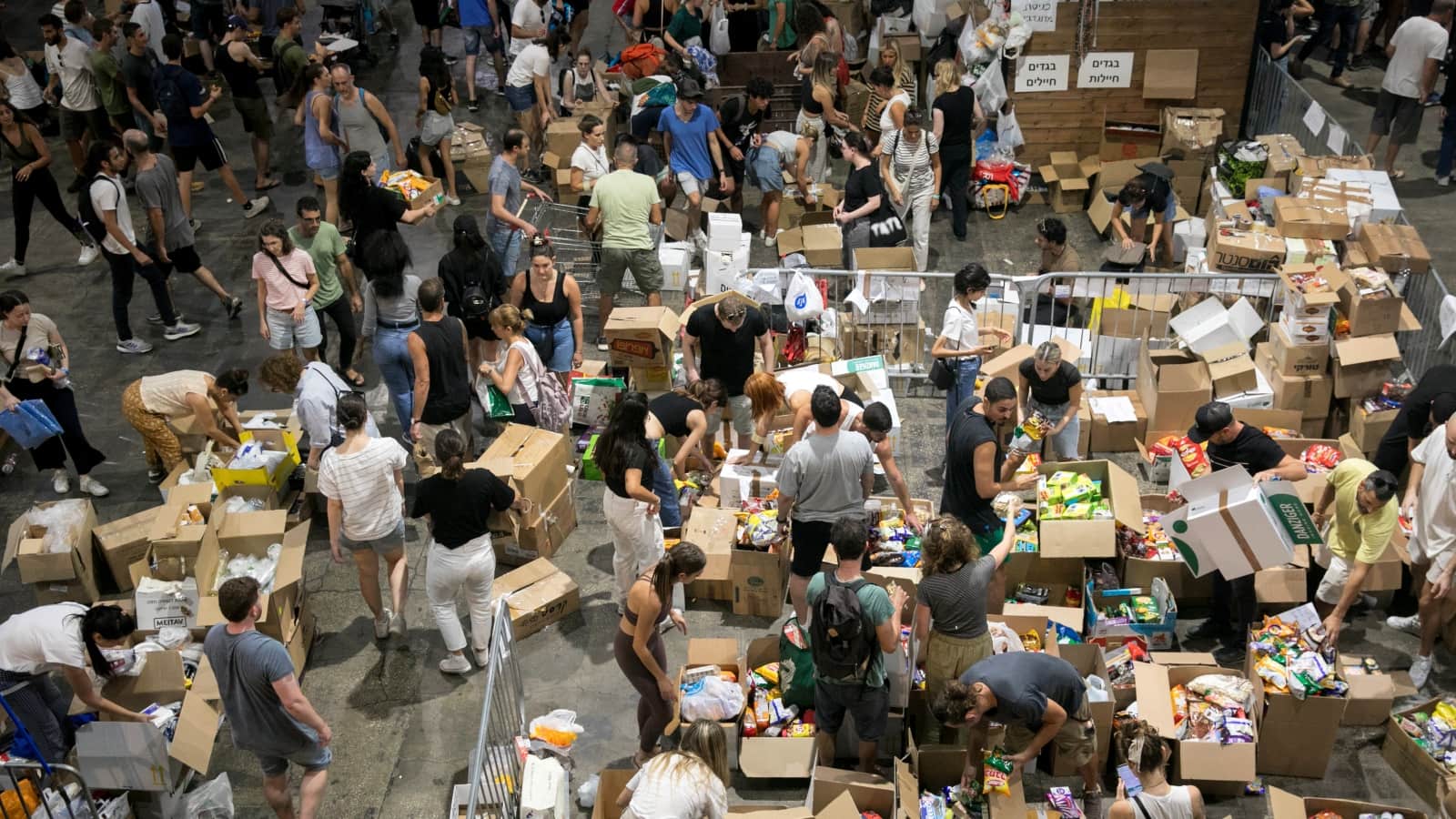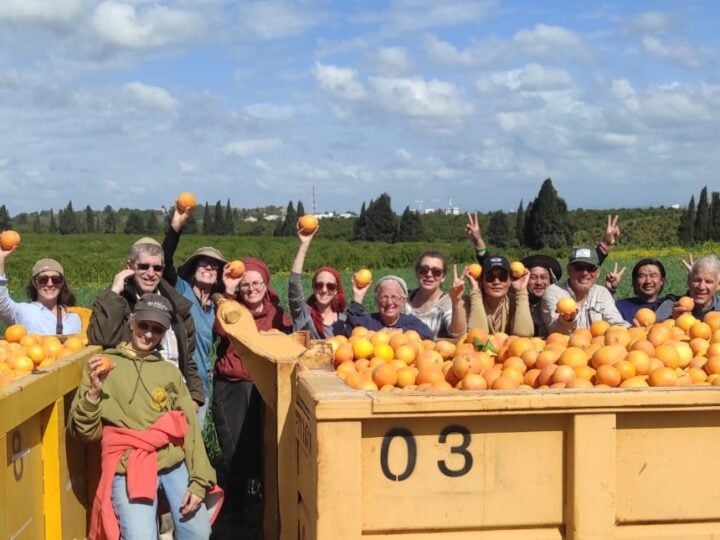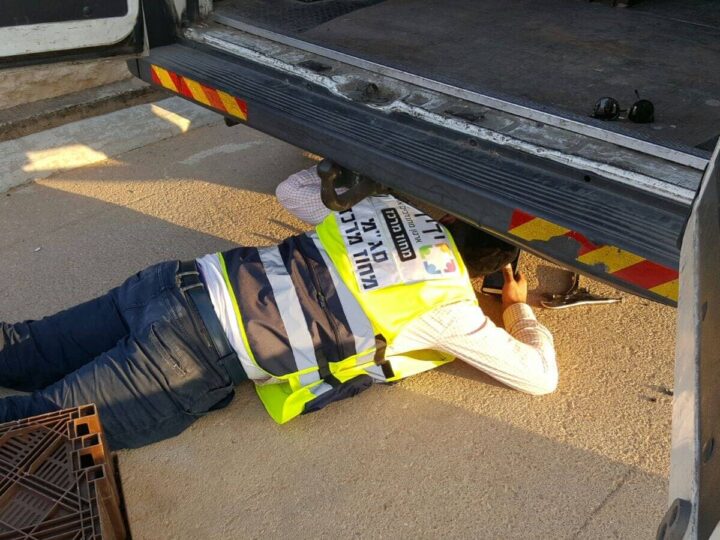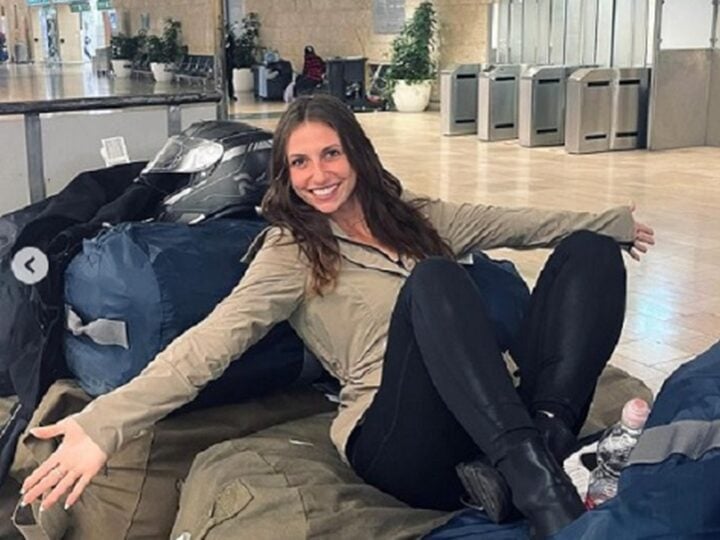During the first two weeks of the October war triggered by brutal terrorist attacks on Israeli men, women and children, more than 1,000 civil initiatives emerged across Israel and 48.6% of the Israeli population engaged in volunteering, according to a report from the Institute for the Study of Civil Society and Philanthropy in Israel at Hebrew University.
“Civil Society Engagement in Israel During the Iron Swords War: Emerging Trends and Preliminary Insights” offers an in-depth analysis of the massive mobilization effort by civil society under the banner of “Defending Our Home.”
Setting aside recent social divisions that some feared would lead to a civil war, Israelis rallied together to carry out rescue operations, evacuations, temporary shelter provision, distribution of vital food and medical supplies, psychological support to survivors and bereaved families, and more.
The researchers found a notable increase in volunteering from the rate observed during the Covid-19 crisis (33%), and noted that volunteerism cut across all age groups, genders and religious affiliations.
Unlike the predominantly youth-driven volunteering seen during the pandemic, 46% of those aged 18-35, 52% of those aged 35-55, and 52% of those above 55 engaged in volunteering during the first two weeks of the war.
The rate of volunteerism among the Arab Israeli population during the war reached 29%, compared to 19% recorded during Covid-19.
The report also reveals that 28% of those volunteering during the first two weeks of the war had never volunteered before. These newcomers were predominantly secular and had above-average incomes.
The most prominent volunteer activities included collecting, packing, and distributing food and equipment; transporting people, food, and equipment; assisting security forces; participating in outreach activities through social networks; and offering essential aid to evacuees.
According to the report, many volunteers integrated their efforts with financial contributions, participating in voluntary initiatives and crowdfunding campaigns.
Moreover, “the use of technology for digital volunteering extended the reach to remote and mobility-limited populations, underscoring the adaptability and inclusivity of these volunteer efforts,” wrote the researchers.
“The report underscores the importance of effective coordination between civil organizations and government bodies to ensure a unified response to pressing needs. It also suggests that civil organizations can evolve into a valuable support force for government activities during ongoing combat operations.”
Israelis donating more, too
A different but related study from Tel Aviv University and Ben-Gurion University of the Negev looked at the scope of donations in Israel during the third week of the war.
They report that donations are much higher than figures recorded previously, both in quiet times and during crises.
The average weekly monetary donation per person is 458 shekels – almost double the sum documented in similar reports in the past.
Nearly two thirds of the public (62%) donated to organizations, communities, campaigns, or individuals in need, giving either money or gifts in kind, including breastmilk and blood donations. This is much higher than the 42% recorded in 2020.
Many Israelis donated to more than one body: 62% of the donors contributed equipment, food, or other necessities to IDF soldiers and the security forces. 53% gave to families whose loved ones had been killed or kidnapped or are still missing, or to people injured or otherwise impacted by the war; 21% donated to hospitals and rescue forces; 12% gave to support the rehabilitation of evacuated communities; and 9% donated to other causes.
The report, authored jointly by Hagai Katz of Ben-Gurion University and Osnat Hazan and Galia Feit from the Institute for Law and Philanthropy at Tel Aviv University, was based on the responses of 563 people over 18 — women and men, Jews and non-Jews, of different ages, with different levels of education, income and religiosity.

















